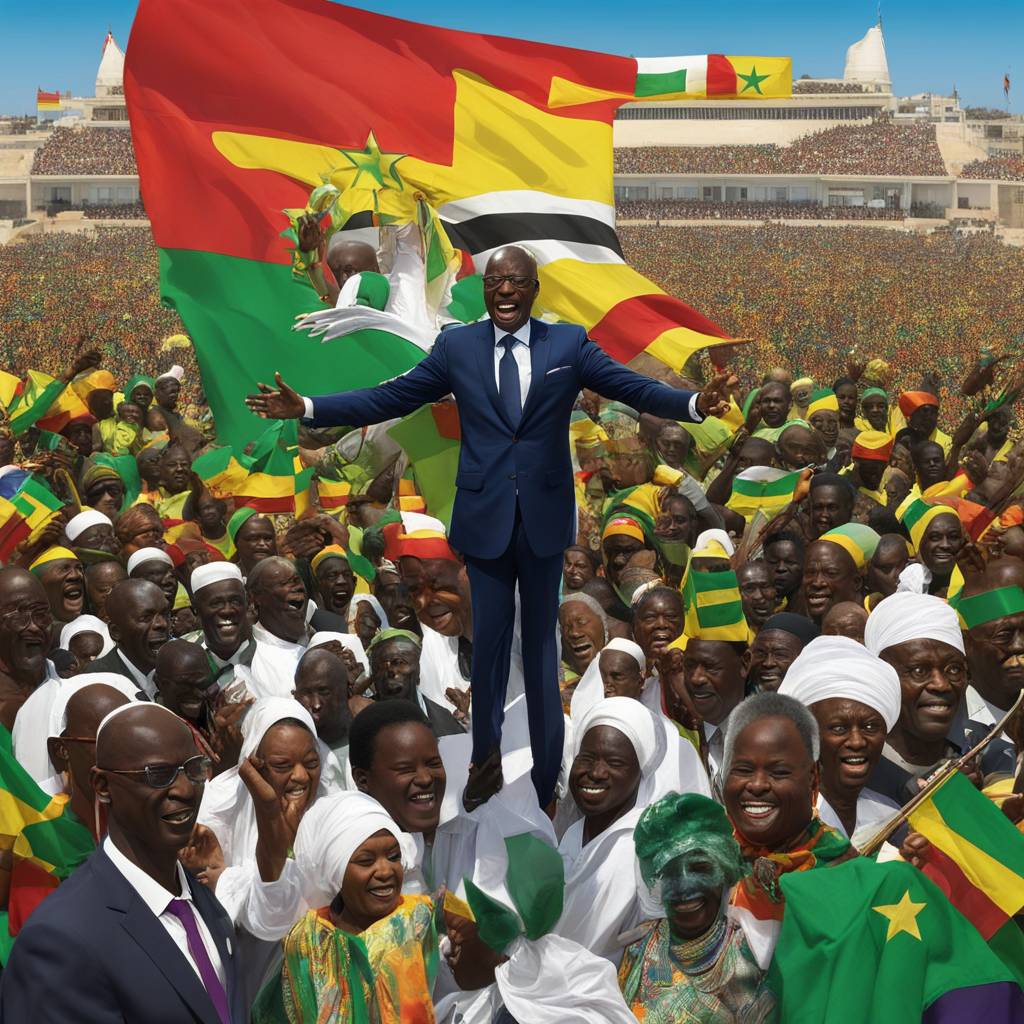Bassirou Diomaye Faye, a former tax inspector and political novice, has been elected as the new president of Senegal. His presidential campaign was backed by popular opposition leader Ousmane Sonko, who was barred from running due to a prior criminal conviction. Many viewed this as a political maneuver by the administration of outgoing president Macky Sall. Faye, who was released from prison just weeks before the election, promised to fight corruption and reform the economy, which resonated with many unemployed youth in Senegal. Speaking after his election win, Faye pledged to govern with transparency and fight corruption at all levels, emphasizing the need to rebuild the country’s institutions.
Despite official results not being available, Faye’s main competitor, a former prime minister backed by President Sall, conceded defeat in the election. This came after months of unrest in Senegal sparked by the arrests of Faye and Sonko, as well as concerns over Sall potentially seeking a third term in office. The violence and protests that followed had challenged Senegal’s reputation as a stable democracy in the region. Faye’s campaign for economic reform and anti-corruption seemed to have struck a chord with the youth, who make up a significant portion of the unemployed population in the country.
Faye’s election marks a significant shift in Senegal’s political landscape, with the promise of major changes in both domestic and foreign policies. His plans include renegotiating Senegal’s oil and gas contracts, promoting national companies to control natural resources, and reforming the troubled regional bloc ECOWAS. Moving away from its former colonial power, France, could define the new government’s foreign policy. The election itself was largely peaceful, with overwhelming support for the opposition being evident in the early counts. Faye’s victory was met with celebrations in the capital as supporters danced, played music, and set off fireworks.
Born in a small town in central Senegal, Faye is a practicing Muslim with two wives. He published a declaration of his assets before the election, revealing property in Dakar and his hometown, as well as modest bank account balances. After studying law and graduating from the National School of Administration, Faye became a tax inspector and joined Sonko’s party PASTEF. He quickly rose through the ranks of the party and was named general secretary in 2021. Despite being a newcomer to politics, Faye credited Sonko with being more honest and entrusted him with the party’s project. However, Faye did not specify what role Sonko would play in his government moving forward.
Faye’s win as the new president of Senegal represents a significant change in the country’s leadership and direction. With promises to tackle corruption, reform the economy, and improve control over natural resources, Faye’s presidency is expected to bring about major policy shifts both domestically and on the international stage. The election outcome signals a desire for change among the Senegalese population, particularly the youth who supported Faye’s anti-establishment message. As he prepares to take office, Faye’s leadership will be closely watched to see if he can deliver on his campaign promises and steer Senegal towards a new era of governance.


